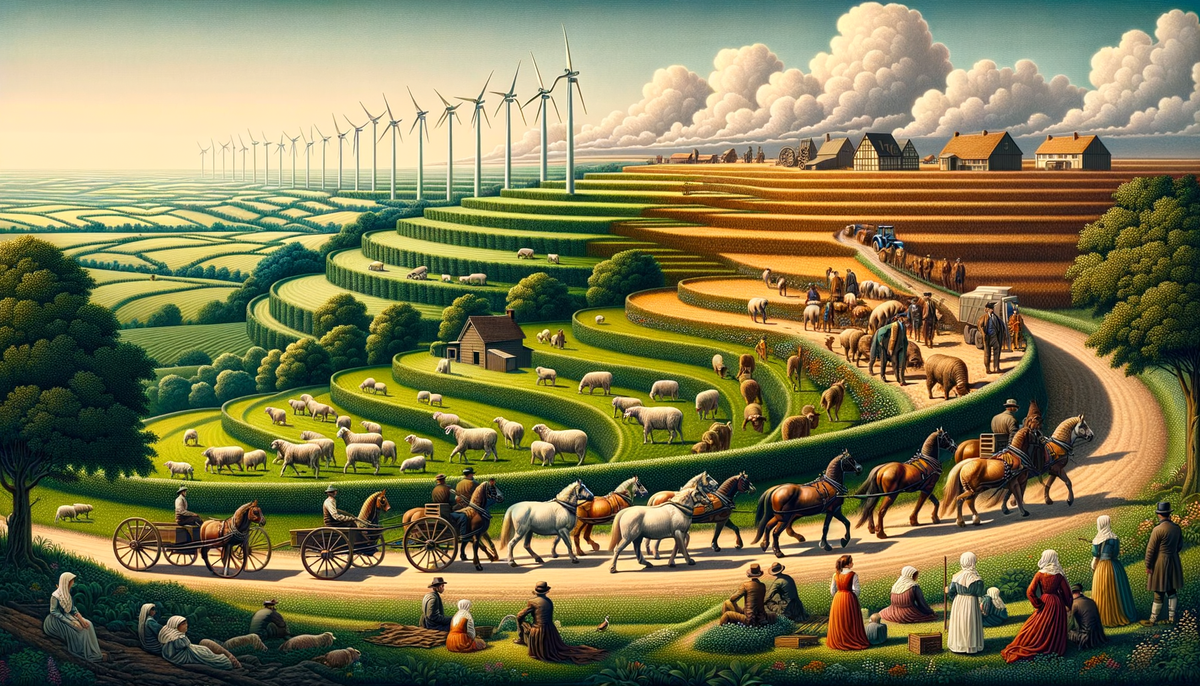Evolution and Influence of Pastoral Societies in Contemporary History
Explore the rich history and enduring influence of pastoral societies. Discover their ancient beginnings, adaptations, economic significance, and modern challenges.

Evolution and Influence of Pastoral Societies in Contemporary History
A Journey Through Time
As an archaeologist, I've always been fascinated by how deeply pastoral societies have influenced our world. These communities, relying heavily on herding and livestock, have adapted and thrived in diverse environments, shaping the culture and economy of many regions across the globe. Understanding the contributions and evolution of these societies gives us valuable insights into human history.
The Ancient Beginnings
Pastoralism has ancient roots, with evidence of herding practices dating back to over 10,000 years ago in regions like the Middle East and Central Asia. Communities transitioned from hunting-gathering to pastoralism, allowing for more stable and sustainable ways of living. This shift played a crucial role in the development of early civilizations by shaping social structures and expanding trade networks.
Adaptation and Survival
One of the most incredible aspects of pastoral societies is their ability to adapt to various landscapes and climates. From the dry deserts of Africa to the highlands of Mongolia, pastoral communities have thrived by developing unique ways to manage their herds and resources. This adaptability has ensured their survival and growth in some of the most challenging environments on Earth.
Economic and Cultural Significance
Pastoral societies have always contributed significantly to the economy, especially through the trade of livestock and animal products. More importantly, their way of life has enriched cultures with unique traditions, languages, and art forms. The interaction between pastoralists and agriculturalists has also fostered mutual dependency and cultural exchange, making these societies indispensable to the regions they inhabit.
Modern Challenges and Transformations
In the modern world, pastoral societies are facing numerous challenges, including climate change, land appropriation, and changing economic conditions. Despite these struggles, they continue to adapt and evolve. For those interested in understanding the impact of historical shifts on contemporary pastoral societies, exploring various resources can be enlightening. For a detailed look into the lives of pastoralists today, I recommend reading more about this subject here.
The Lasting Legacy
The legacy of pastoral societies is evident in many aspects of our world today. From culinary traditions to language influences and economic practices, the imprint left by these resilient communities is undeniable. As we continue to dig into the past and understand their evolution, we recognize the enduring impact they've had on shaping human history.
A Call for Preservation
Preserving the knowledge and traditions of pastoral societies is crucial for future generations. By studying their history and understanding their contributions, we not only honor their legacy but also gain valuable lessons in resilience and adaptation. Let us continue to explore, celebrate, and protect these rich cultural tapestries for years to come.



